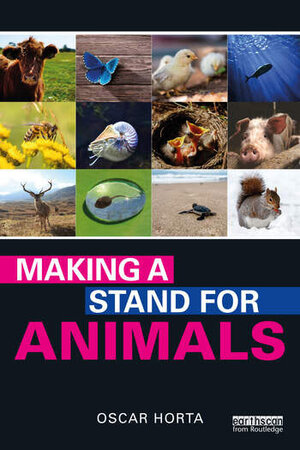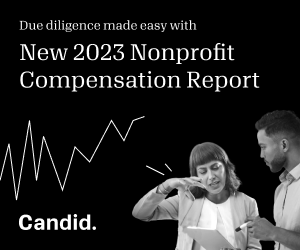Why animal welfare must be the next frontier for climate funders

In recent years, the global philanthropic community has well and truly begun to turn its attention and resources to tackling the most pressing challenge for our generation: climate change. According to ClimateWorks Foundation, in 2021 alone, philanthropic giving to climate change mitigation projects increased by a staggering 25 percent, compared with the 8 percent growth in overall philanthropic spending.
As funding for climate issues grows, it’s more important than ever that the philanthropic community’s approach is strategic and targeted toward the issues that can lead to the greatest impact. Food system transformation—and animal agriculture in particular—is one of these areas, yet just 0.1 percent of global philanthropic donations goes toward improving or replacing factory farming.
When looking at the meat industry—and the giant factory farms that fuel it—animal welfare and environmental protection goals are intrinsically linked. Investing in food systems transformation is an impactful way for the philanthropic community—and specifically those focused on climate change—to achieve huge emissions reductions and, in the process, improve animal welfare and protect human health.
Why is food system transformation so important for environmental protection?
Factory farming is a multi-billion-dollar industry responsible for large-scale environmental degradation and untold harms to the 80 billion land-based animals that pass through the system every year. Farmed animals contribute an estimated 14 percent of global greenhouse gas emissions, with the animal feed industry alone responsible for around 45 percent of total agricultural emissions.
Everything from the housing of animals, through to the harvesting of animal feed and processing of carcasses, uses huge amounts of fossil fuel-generated energy. But the meat industry’s biggest climate impact is deforestation, which leads to biodiversity loss, driven largely by the need to produce animal feed. Around 80 percent of global deforestation is a result of agricultural production. Experts warn that the Amazon is approaching its tipping point, which would unleash mass dieback and transform the rainforest to grassland over a few decades, releasing unprecedented amounts of carbon.
Recent research released by World Animal Protection found that the five largest global chicken and pork meat processors produce, in a single year, the equivalent emissions to that of 36.4 million cars on the road. With figures like these, it’s clear that these systems need to be challenged if we’re going to get anywhere close to the international climate goals set out in the Paris Agreement.
Considering the wider impacts of factory farming
Disrupting these systems also has impacts beyond environmental considerations. Slaughtering over 34 million cows, nine billion chickens, and 129 million pigs in the United States in 2021 alone, meat industry giants are responsible for extensive animal suffering—forced to live cheek by jowl and pumped full of antibiotics to stave off disease resulting from the stressful conditions they are forced to endure. Not only is this treatment of animals unacceptable from a welfare perspective, but it has alarming implications for public health. Zoonotic diseases—those transmitted from animals to humans—are fueling an increase in pandemics. Around three-quarters of all the world’s antibiotics are used on farmed animals, which, in turn, has given rise to antibiotic-resistant superbugs. These superbugs already kill 1.27 million people each year and are projected to be the leading cause of death globally by 2050.
Where does philanthropic giving fit in?
Recognizing the relationship between food production, public health concerns, and the environment creates a renewed impetus for urgent investments in organizations that are addressing the issue of animal welfare in food systems. The case for rapidly scaling up philanthropic investment into organizations that advocate for these causes has never been clearer.
The ability of philanthropists to mobilize and deploy significant, long-term funding makes the sector uniquely placed to recognize and tackle the complex interaction between animal welfare, human health, and the climate. The task for philanthropists is to challenge their own funding models and traditional approaches, and to come together to develop new, holistic strategies that address these issues collectively.
Organizations across the food systems and animal welfare advocacy spaces are increasingly campaigning against the industrial meat-producing giants, pressuring governments to stop building new factory farms, and to eliminate the staggering subsidies that incentivize the industry’s growth. Sustained and strategic support for organizations working on these issues will be a critical part of the fight to transform our food systems, and reduce global greenhouse gas emissions.
Steve McIvor is CEO of World Animal Protection.








Climate finance takes center stage